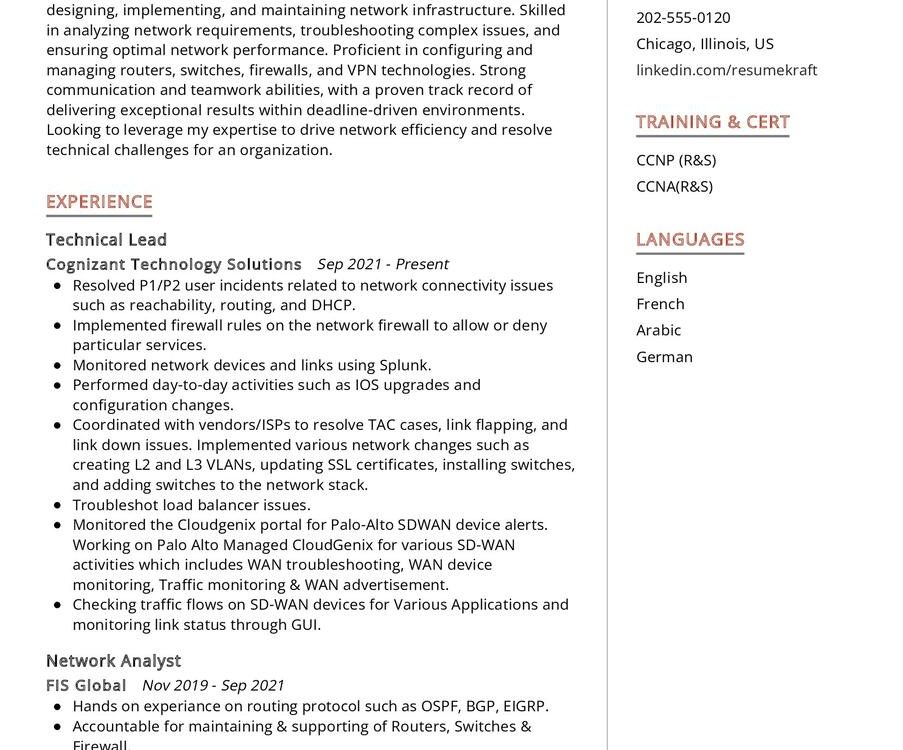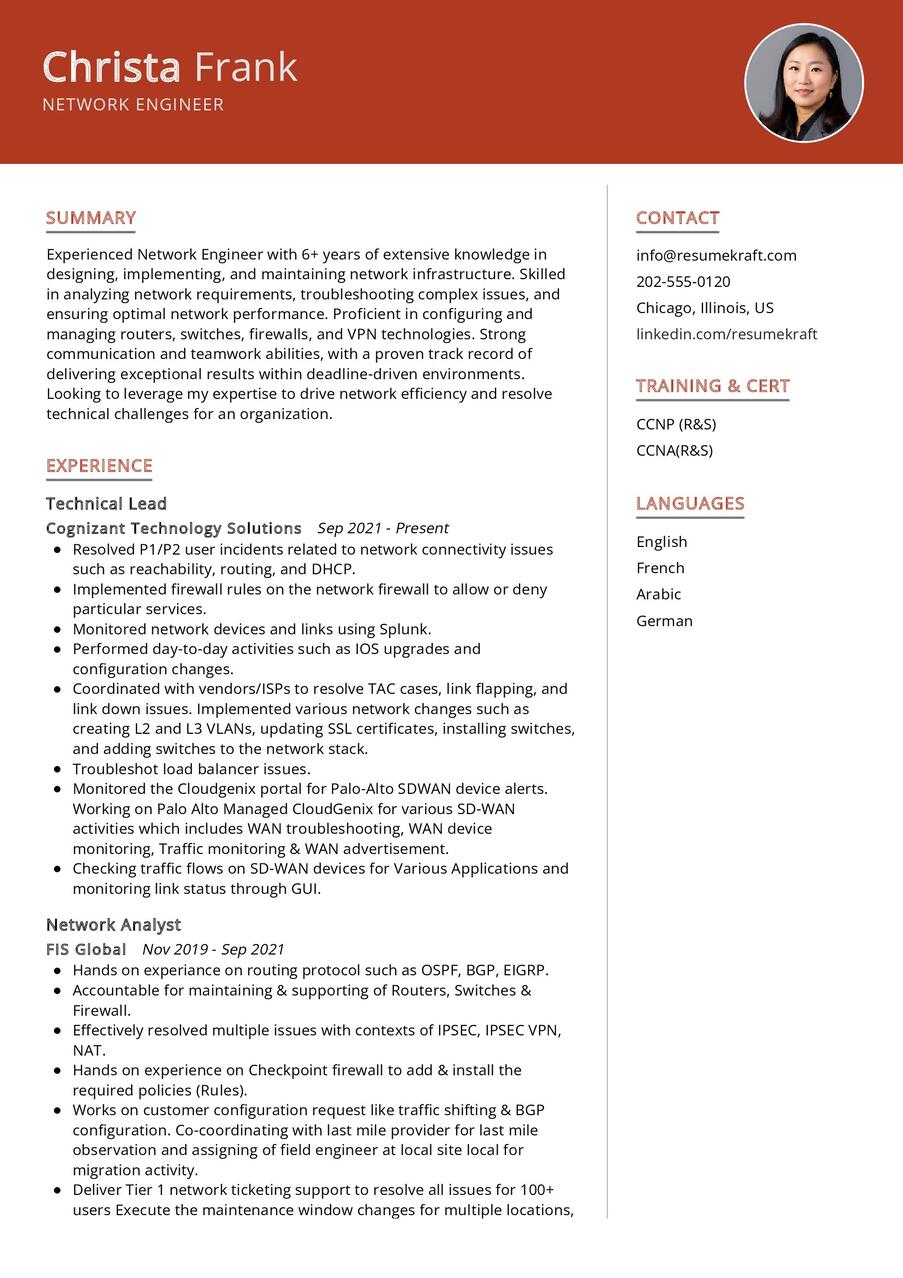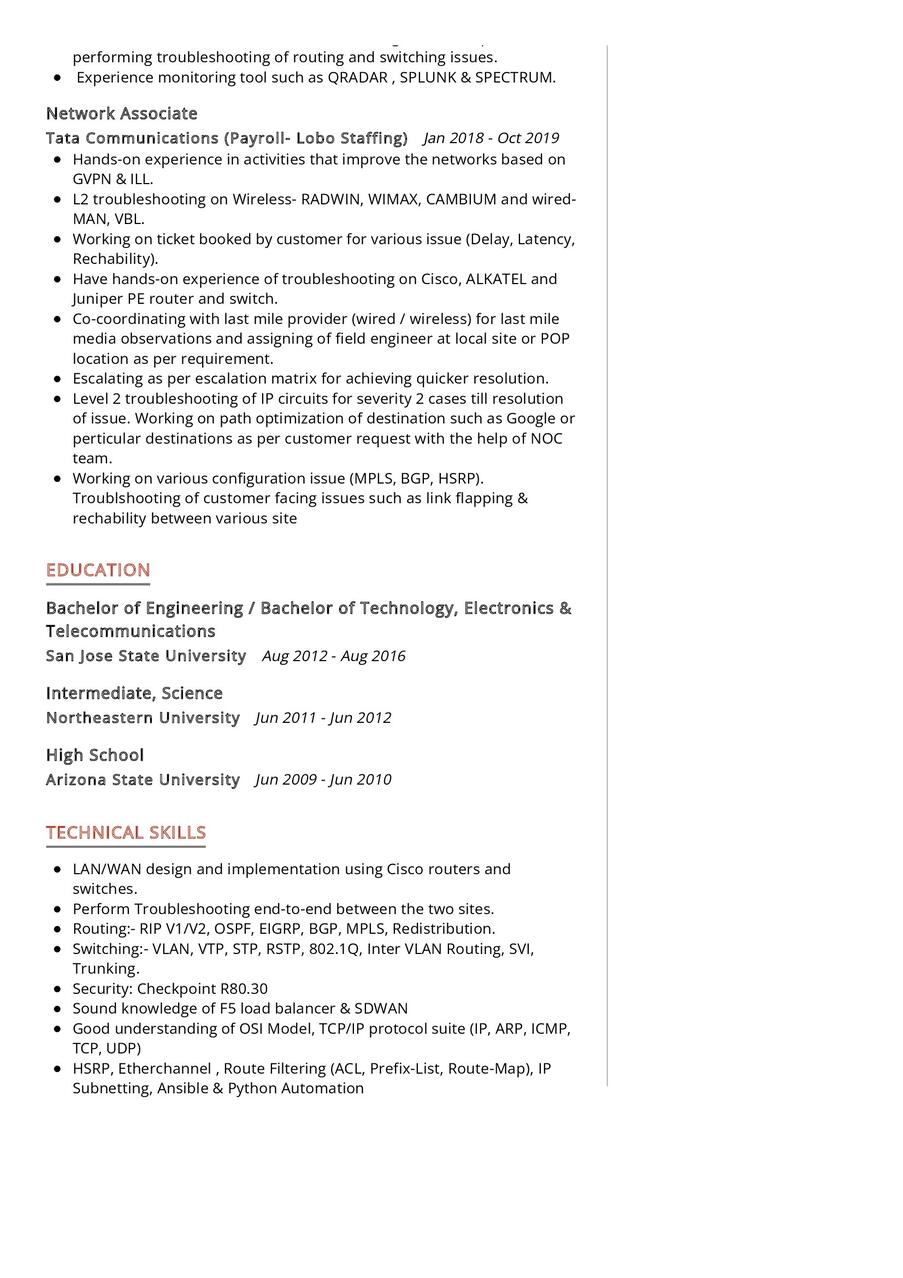Exploring the Role of a Network Engineer
In today’s interconnected world, the role of a Network Engineer is crucial for maintaining the backbone of communication and data exchange. A Network Engineer is not just a technical expert but a key player in ensuring seamless connectivity and secure data transmission across organizations. Let’s dive into the multifaceted responsibilities and requirements that define the path to becoming a successful Network Engineer.
What are the Network Engineer Job Requirements?
Becoming a proficient Network Engineer involves meeting specific requirements that blend technical prowess with problem-solving skills. Here’s a detailed look at the prerequisites for stepping into the shoes of a Network Engineer:
- A Bachelor’s or Master’s degree in Computer Science, Information Technology, or a related field, providing a solid foundation in the realm of networking.
- Comprehensive knowledge of networking protocols, including TCP/IP, DNS, DHCP, and others.
- Hands-on experience in configuring and managing routers, switches, firewalls, and other network devices.
- Proficiency in network monitoring tools to ensure optimal performance and troubleshoot issues effectively.
- Strong problem-solving and analytical skills, honed through practical experiences and real-world challenges.
- Excellent communication skills to collaborate with cross-functional teams and convey technical information to non-technical stakeholders.
- Certifications such as Cisco Certified Network Associate (CCNA) or CompTIA Network+ can enhance your profile in the competitive job market.
Continuous learning and staying updated with the latest trends in networking are essential for excelling in this dynamic field.
Responsibilities of a Network Engineer
The role of a Network Engineer extends far beyond managing cables and configuring routers. It encompasses a range of responsibilities that contribute to the overall efficiency and security of an organization’s network infrastructure. Let’s break down the key responsibilities:
- Designing and implementing secure and scalable network architectures to meet organizational needs.
- Configuring and maintaining network hardware and software, ensuring optimal performance and minimal downtime.
- Monitoring network performance and security, identifying and resolving issues proactively.
- Collaborating with IT teams to implement and upgrade network systems as technology evolves.
- Providing technical support to end-users, addressing network-related concerns and ensuring a smooth user experience.
- Implementing and enforcing network security protocols to safeguard sensitive data and prevent unauthorized access.
- Documenting network configurations, troubleshooting procedures, and solutions for future reference.
Each responsibility plays a crucial role in building a robust and efficient network infrastructure.
Network Engineer CV Writing Tips
Crafting a compelling CV is the first step toward securing a rewarding position as a Network Engineer. Here are some tips to help you create a standout CV that highlights your skills and experiences effectively:
- Emphasize hands-on experience: Showcase specific projects or scenarios where you applied your networking skills to solve problems or improve efficiency.
- Quantify achievements: Use metrics to highlight the impact of your work, such as percentage improvements in network performance or successful implementation of security measures.
- Include relevant certifications: Displaying certifications like CCNA or CompTIA Network+ adds credibility to your CV and demonstrates your commitment to professional development.
- Tailor your CV for the job: Customize your CV for each application, aligning your skills and experiences with the specific requirements of the role.
Your CV is not just a document; it’s a representation of your expertise and potential as a Network Engineer.
Network Engineer CV Summary Examples
Your CV summary is the gateway to showcasing your skills and experiences. Craft a powerful summary that encapsulates your journey and the value you bring to the table. Here are some examples to inspire you:
- “Results-driven Network Engineer with over 8 years of experience optimizing network performance and implementing robust security measures. Adept at leading cross-functional teams and ensuring seamless connectivity for organizational success.”
- “Experienced Network Engineer with a proven track record in designing and managing complex network infrastructures. Skilled in troubleshooting and resolving network issues promptly, contributing to a resilient and efficient IT environment.”
- “Detail-oriented Network Engineer specializing in network optimization and security. Strong communication skills with a focus on providing exceptional technical support to end-users, fostering a positive and productive user experience.”
Each summary is a snapshot of your expertise, setting the stage for a more in-depth exploration of your CV.
Create a Robust Experience Section for Your Network Engineer CV
Your experience section is the core of your CV, narrating the story of your career and highlighting key milestones. Here are examples to guide you in creating a compelling experience section:
- “Led the implementation of a network upgrade project, resulting in a 30% improvement in overall network speed and efficiency.”
- “Collaborated with cybersecurity experts to develop and implement advanced security protocols, ensuring data integrity and protecting against potential threats.”
- “Provided technical training to junior network engineers, contributing to the professional development of the team and enhancing overall departmental capabilities.”
Each experience is a testament to your skills, problem-solving abilities, and contributions to the success of the organization.
Educational Background for Your Network Engineer CV
Your educational background serves as the foundation for your career. Here’s how you can present your academic achievements in your Network Engineer CV:
- Master of Science in Computer Networking, XYZ University, 2017.
- Bachelor of Technology in Information Technology, ABC College, 2014.
- Cisco Certified Network Associate (CCNA), Cisco, 2015.
Each educational qualification is a stepping stone, contributing to your expertise as a Network Engineer.
Network Engineer Skills for Your CV
Your skill set is the toolbox that empowers you to excel as a Network Engineer. Here’s a breakdown of essential skills that can be highlighted in your CV:
Soft Skills:
- Effective communication, the ability to convey technical information clearly to both technical and non-technical stakeholders.
- Problem-solving, the capacity to analyze and resolve complex network issues efficiently.
- Team collaboration, fostering a positive and collaborative environment within cross-functional teams.
- Attention to detail, ensuring accuracy in network configurations and documentation.
- Adaptability, the ability to adjust to evolving technologies and industry trends.
Hard Skills:
- Proficiency in networking protocols such as TCP/IP, DNS, DHCP, and others.
- Configuration and management of routers, switches, firewalls, and other network devices.
- Knowledge of network monitoring tools for performance optimization and issue resolution.
- Network security implementation, safeguarding sensitive data from unauthorized access.
- Troubleshooting and diagnostics, identifying and resolving network issues promptly.
Each skill is a valuable asset, contributing to your effectiveness as a Network Engineer.
Common Mistakes to Avoid When Writing a Network Engineer CV
Avoiding common pitfalls in CV writing is crucial for presenting yourself as the ideal candidate. Here are mistakes to steer clear of:
- Generic CVs: Tailor your CV for each application, showcasing your specific fit for the role.
- Lack of quantifiable achievements: Highlight your impact by using metrics to quantify your achievements and contributions.
- Overlooking certifications: Certifications like CCNA add credibility and demonstrate your commitment to continuous learning.
- Ignoring customization: Tailor your CV for each job application, aligning your skills and experiences with the specific requirements of the role.
- Neglecting proofreading: A well-proofread CV enhances your professional image and attention to detail.
Avoiding these mistakes ensures that your CV is not only authentic but also compelling.
Key Takeaways for Your Network Engineer CV
As you conclude the crafting of your Network Engineer CV, keep these key points in mind:
- Highlight hands-on experience and quantify achievements to showcase your impact.
- Emphasize relevant certifications, such as CCNA, to add credibility to your profile.
- Tailor your CV for each application, aligning your skills with the specific requirements of the role.
- Utilize resources like AI CV Builder, CV Design, CV Samples, CV Examples, CV Skills, CV Help, CV Synonyms, and Job Responsibilities to create a standout application and prepare for the Network Engineer job interview.
Your CV is more than a document; it’s a canvas where you paint your career story, showcasing your growth, learning, and expertise as a Network Engineer. Best of luck!
Finally, feel free to utilize resources like AI CV Builder, CV Design, CV Samples, CV Examples, CV Skills, CV Help, CV Synonyms, and Job Responsibilities to create a standout application and prepare for the Network Engineer job interview.



